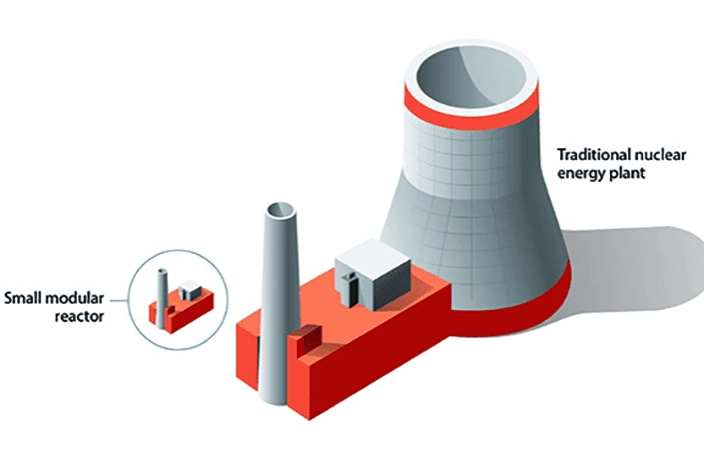Given the relatively high cost of healthcare in the United States, there has been an increased focus in recent years on preventive care practices that anyone can do at home. Thankfully, most of the things that we can do to help keep our minds in good shape only cost us time, rather than money.
All the activities below are things most of us can do to help improve and maintain our mental health. We already know that exercise is good for the body, and that things like meditation and getting enough sleep make you feel great. However, there is now strong scientific evidence that these and other easily accessible activities can also be key to improving happiness and maintaining our higher mental functions.
Benefits of exercise
The concept of the duality of mind and body has persisted for millennia. However, we now know that both are intimately linked. Something that affects one affects the other. Regular exercise has long been touted as a therapeutic activity, but it’s only in the past few generations that we’ve begun to understand just how much it can benefit the mind.
Moderate physical exercise has been linked to the following benefits:
A reduction in stress, depression, and anxiety symptoms
You will probably have to look pretty hard to find a depressed gym rat. Most people who exercise regularly will cite the reduction in stress, depression, and anxiety as the main reasons they do it. Multiple studies have shown regular exercise to be highly beneficial for mitigating these conditions, with some even showing effects comparable to antidepressant and anti-anxiety medication.
Better control of ADHD
ADHD is one of the most common mental health disorders among adults today. The brains of people with ADHD will often don’t respond very easily to dopamine, the neurotransmitter responsible for attention, executive functions, and clear thinking. Many medications for ADHD treat the condition by stimulating dopamine production in the brain. However, moderate exercise can do the same thing for most people with the condition. This is on top of all the other physical and mental health benefits related to exercise.
May help individuals move on from trauma
There is growing evidence that exercise can help people with PTSD, substance use disorder, and other related conditions break free from the immediate trauma cycle. Aside from helping mitigate symptoms specific to PTSD and substance use disorder, regular exercise also helps control the effects of depression and anxiety, which themselves tend to co-occur with these disorders.
Benefits of meditation
While meditation is an ancient practice that likely reaches as far back as prehistory, it wasn’t seriously considered as a therapy by most Western healthcare experts until just a few decades ago.
Today, meditation and its close cousin, mindfulness, are widely acknowledged to have several mental health benefits, leading even such tradition-bound organizations as the United States Marine Corps to practice it.
A few of the proven benefits of meditation include:
An improvement in patience and tolerance
Multiple studies over the years have shown that regular meditation can reduce resting heart rates and improve anxiety and stress symptoms. Meditation can help break cycles of negative emotions that cause us to perceive problems to be bigger than they really are, resulting in less stress and a more nuanced understanding of the issues that might be bothering us.
Better self-awareness
A lot of the benefits of meditation have to do with how it helps practitioners analyze their own ways of thinking. While we are constantly in contact with our own minds, so to speak, our busy lifestyles don’t necessarily leave much time for introspection.
Regular meditation can help busy or distracted individuals better process their thoughts and emotions. This also makes meditation a valuable supplement to other mainstream therapeutic approaches like cognitive-behavioral therapy and motivational interviewing.
May improve empathy
Not only does meditation help us learn more about ourselves, but it can also be key to learning about others as well. There is growing evidence that meditation may help improve a person’s empathy. This can be critical for people with mental health conditions that undermine their ability to understand or relate to others. Over time, this may help individuals build better interpersonal relationships, which may lead to more improvements in mental health.
Benefits of getting enough sleep
About a third of adult Americans are chronically under-rested. While it’s fairly obvious that sleep deprivation is not a good thing, many Americans still take it – and their coffee habit – as a badge of pride. Regardless, getting enough good quality sleep has been shown time and again to have the following benefits:
More emotional resilience
Getting enough sleep has been shown to make people less prone to making rash emotional decisions. No surprise, given that more sleep often correlates to improved executive functioning.
Better memory and concentration
If you’re having problems being more productive, one counterintuitive solution that’s worked for many is to work fewer hours and sleep more. Better rested individuals are typically more efficient compared to those who are going through chronic sleep deprivation.
Prevents different mental health conditions from worsening
Anxiety, depression, and PTSD are just some of the conditions that could be improved by getting enough sleep. While more sleep won’t cure any of these conditions, it can certainly go a long way in helping them become more manageable. Work with a qualified therapist if you have problems getting the quality sleep you need.
Benefits of having hobbies
Whether it’s fishing, skateboarding, model-building, or gardening, having some kind of hobby is essential for our mental well-being. Some of the benefits of having a hobby include:
A better overall mood
Hobbies, particularly active ones, can help people bleed off stress and nervous energy that keeps them from becoming relaxed. In people with mental health conditions, healthy hobbies can have a positive synergistic effect with mainstream treatment approaches.
Some hobbies can help build positive social connections
Even less active hobbies like collecting can have a positive impact on our mental health. Thanks to the internet, most hobbyists now have communities surrounding them. If a person so chooses, they can forge close bonds with people throughout the globe over their love of an activity.
They can help individuals discover their strengths
Most hobbies have a way of helping us learn about ourselves. When combined with journaling and counseling, hobbies can make a positive impact on how we understand our motivations, thought processes, and other things that directly relate to our mental health and worldview.
Benefits of volunteer work
Volunteerism has long been touted as a way of making people feel better while they make a positive impact on the world. The evidence seems to show that volunteerism does offer a few benefits for improving and maintaining mental health.
Some benefits of volunteering include:
A deeper sense of purpose
While volunteering won’t cure depression, having a higher purpose in life can help people work through it. People who do regular volunteer work generally report fewer or less intense depression symptoms, while reporting higher overall satisfaction with life.
Offers new, mentally stimulating challenges
In many ways, the mind is like a muscle. If you don’t use it, you lose it. Volunteering often forces people to take on roles and challenges they may be unfamiliar with. These can help keep the mind active, which is an important way to help keep mentally nimble as we age.
Helps build new relationships
Doing volunteer work puts us in contact with a lot of people we may not normally meet in our work and personal lives. This not only brings opportunities to expand social circles but also offers a way to hone empathy and social skills. This can be important for people with depression or those with social anxiety, as they may not often have these social opportunities elsewhere.
Benefits of journaling and talk therapy
Talking is another therapeutic approach that is likely to be as old as humanity itself, and writing is similarly ancient. Humans are social creatures, and most of us are wired to enjoy speaking our minds to a receptive audience.
Even if you’re not into journaling or don’t have someone you trust to talk to, you can still get some of the benefits by talking to a pet, a houseplant, a baby, or even to yourself.
Some of these benefits of these practices include:
Improved contextualization of feelings
Sometimes you just have to get things out of you to better understand what’s going on with your emotional and mental state. It can be very difficult to identify and understand your feelings if you don’t acknowledge them verbally or in writing.
Prevents repressed emotions from doing further damage
Repressed emotions can be a cause of ongoing trauma. Repressing emotions can raise blood pressure, affect your memory, and contribute to myriad mental health disorders. There is even evidence that ongoing emotional repression can contribute to a cycle of trauma, which can result in brain damage.
By releasing these emotions through journaling or by talking about them, individuals allow themselves to vent, collect their thoughts, better understand what’s going on. This can be especially beneficial when combined with regular sessions with a qualified therapist.
Keeps individuals from exhibiting passive-aggressive behavior
Trauma often exhibits itself in passive-aggression. This can lead to conflict in personal and professional relationships, which in turn may hinder recovery from a host of mental health conditions.
By journaling or talking things out with a person they trust, individuals can begin to recognize how their trauma is affecting their interactions with others. When this happens, they can begin to take the appropriate action to safeguard their mental health and prevent further deterioration in their relationships.
Summary
Though these activities are not a direct substitute for the advice of a qualified mental health expert, they can be a valuable supplement to mainstream psychiatric care practices.
The great thing about these activities is that they are all really easy to get into, and most of them only cost as much as an individual is willing to spend. Given that there are almost no drawbacks to trying these practices out, everyone should give these a chance, if they could.
For most people, these activities can be part of the regular mental hygiene that ensures a richer, more enjoyable quality of life. For the millions of Americans with serious mental health issues, these practices can mean the difference between having to take certain medications daily, or just having to take them as needed.
-
Arthur Piccio has been a professional writer for several acclaimed US brands since 2007. He is currently the Managing Editor at Dallas Drug Treatment Centers, a local rehab center directory service that connects people with substance rehab centers in the Dallas-Fort Worth-Arlington area.
View all posts






